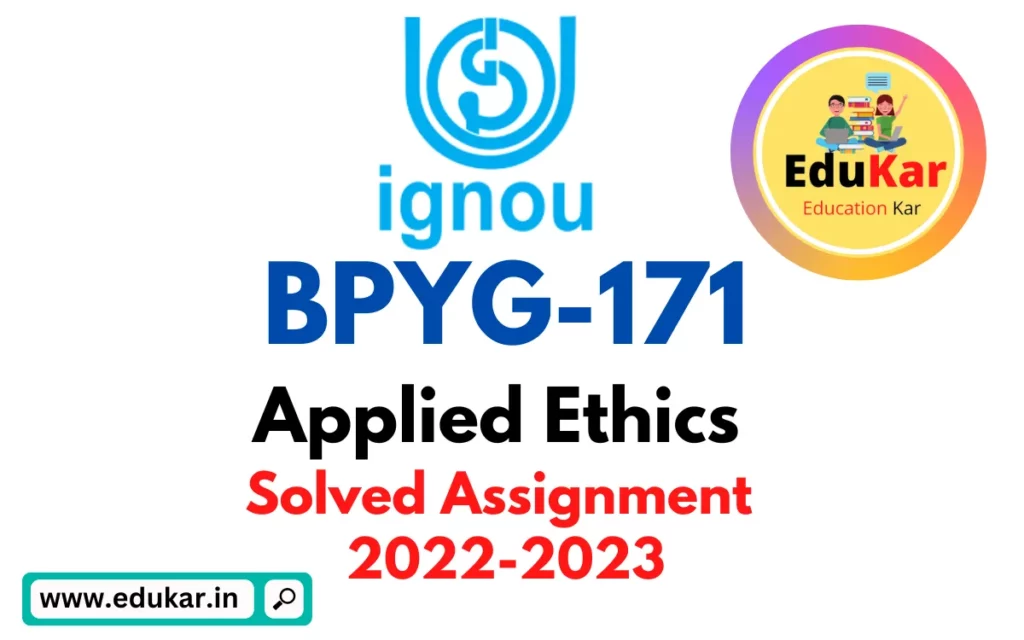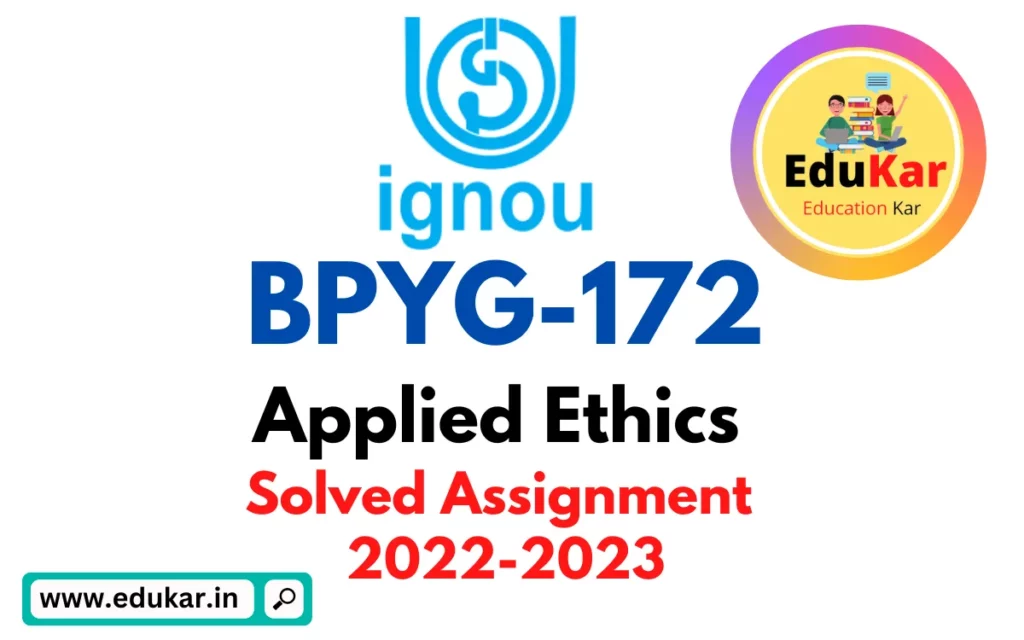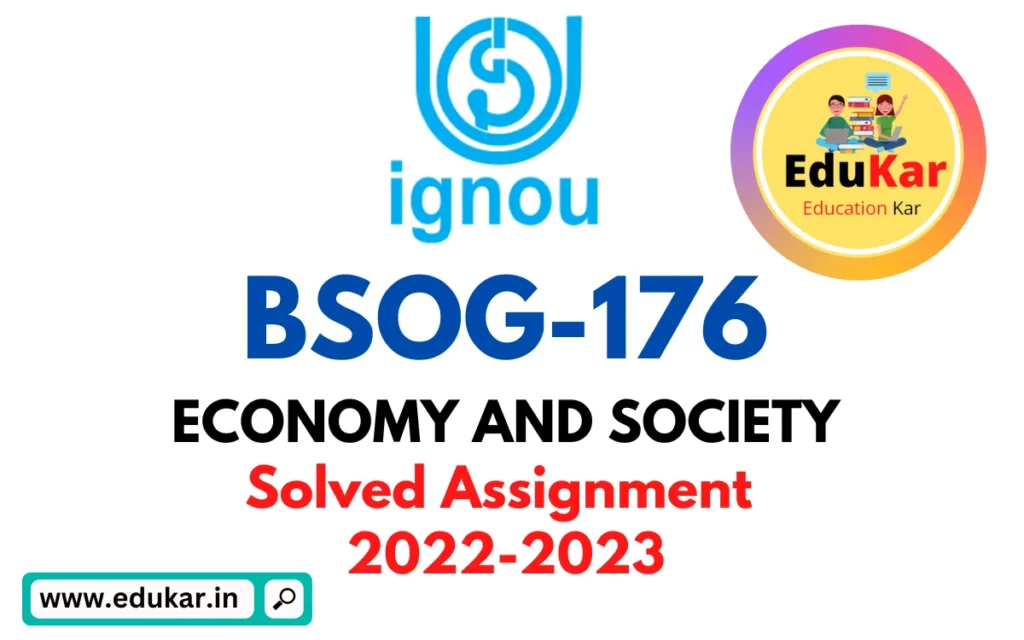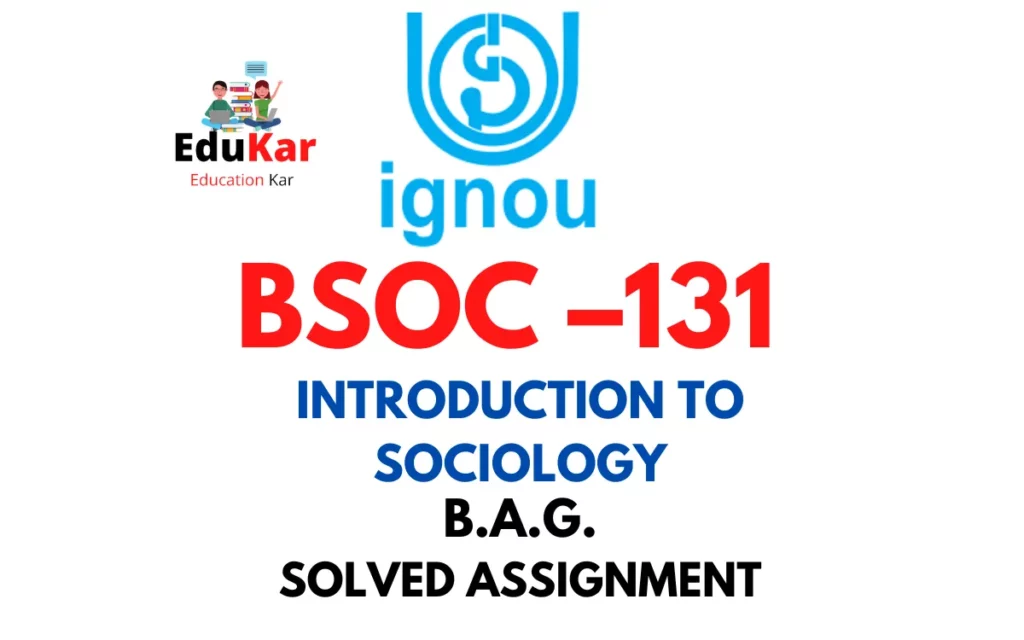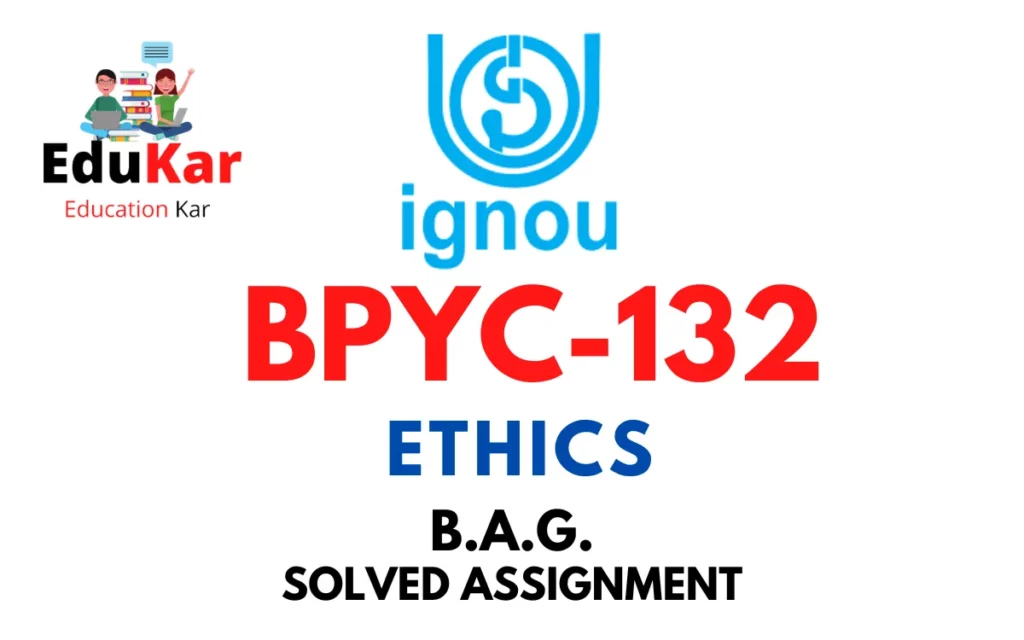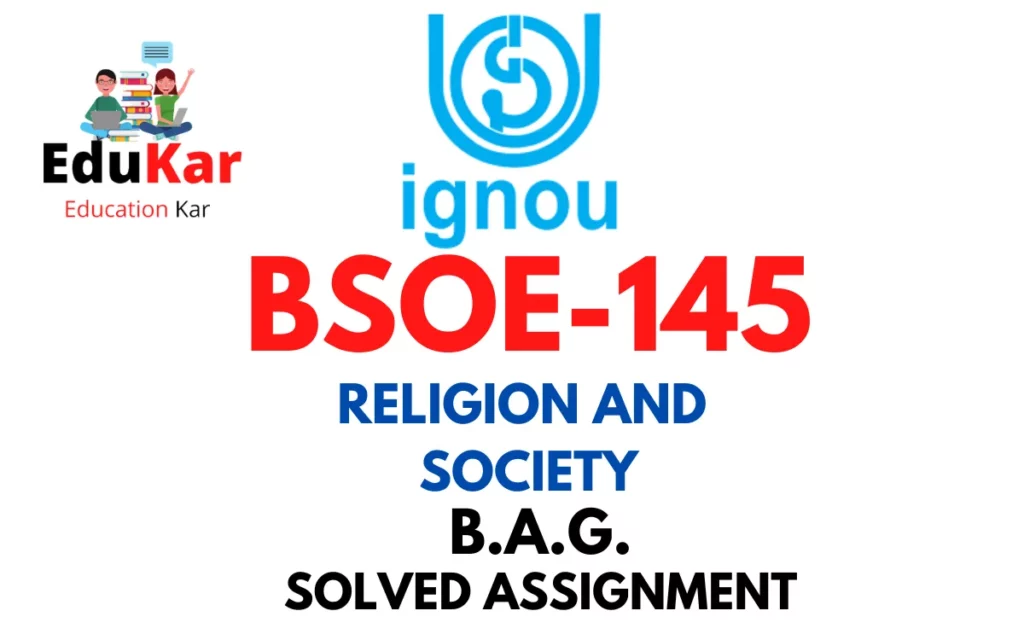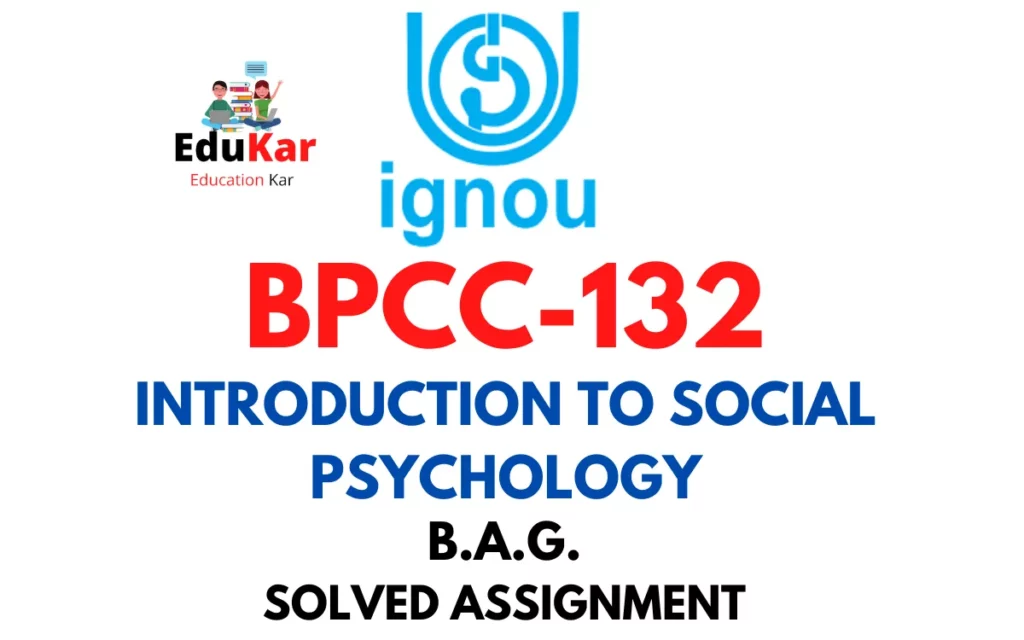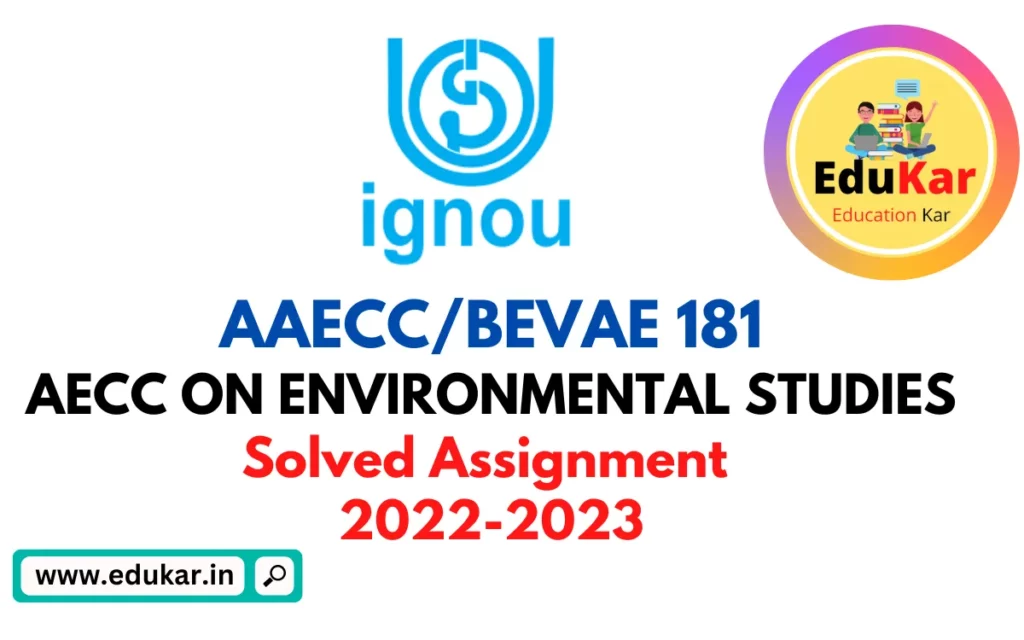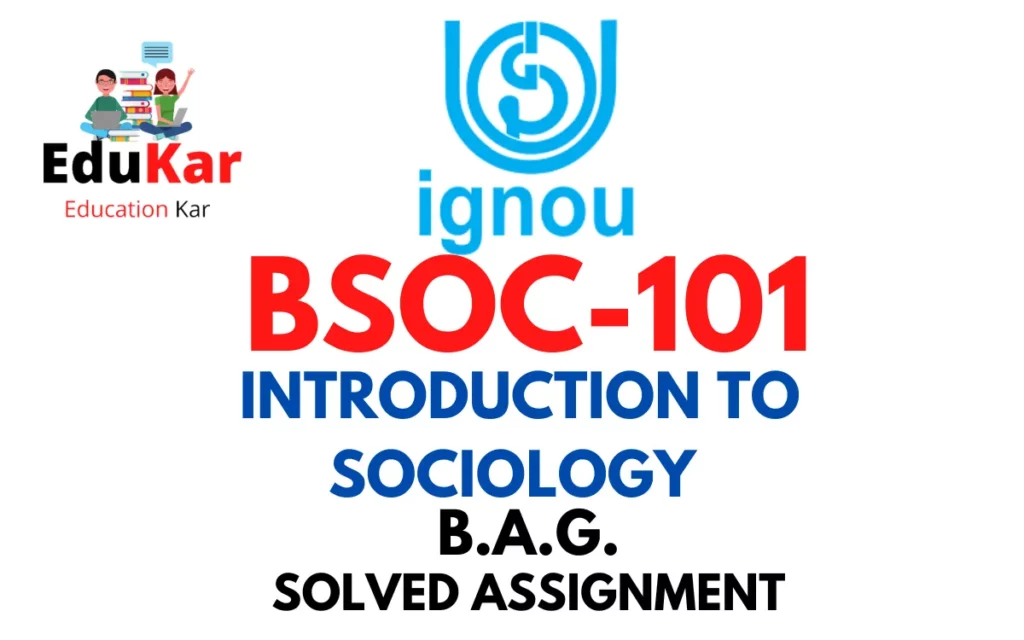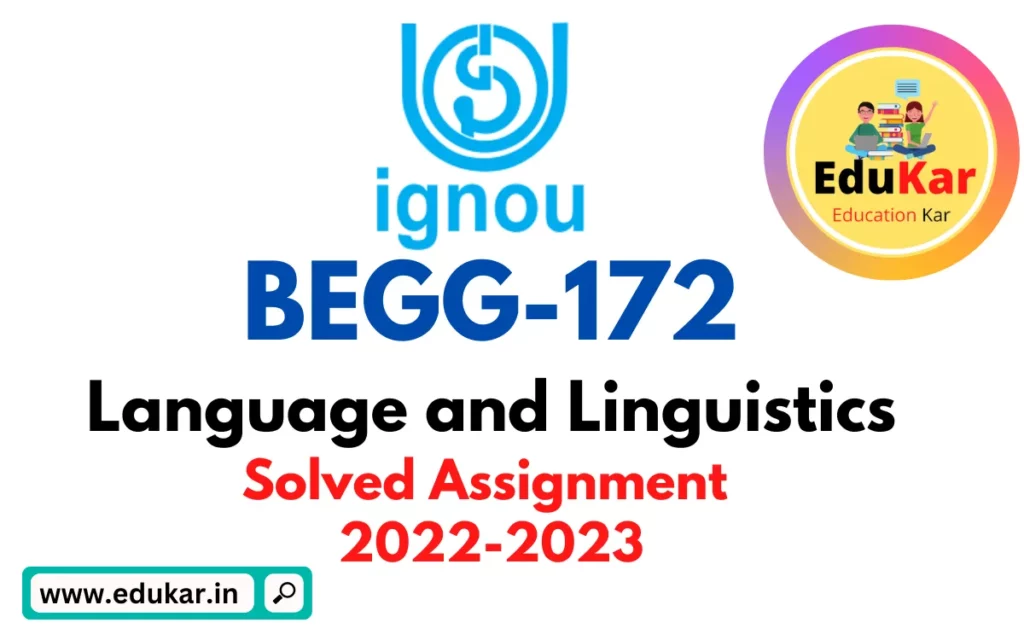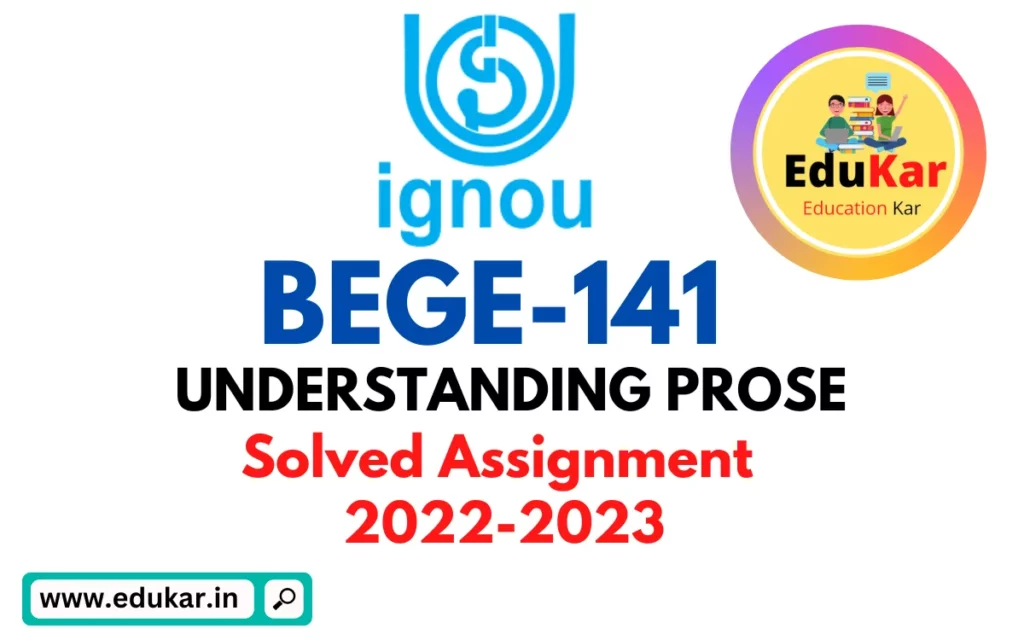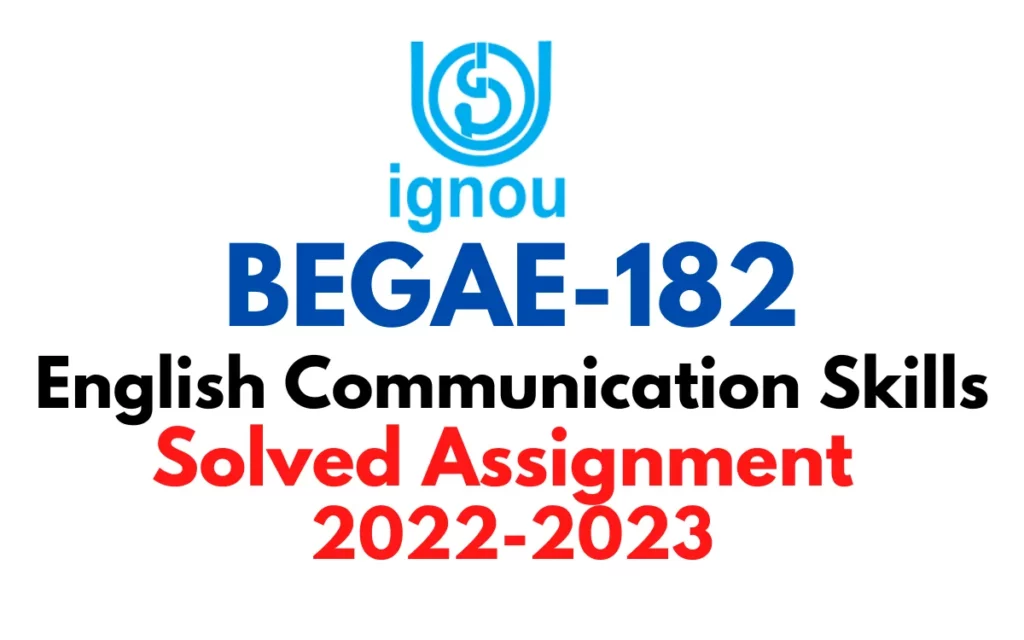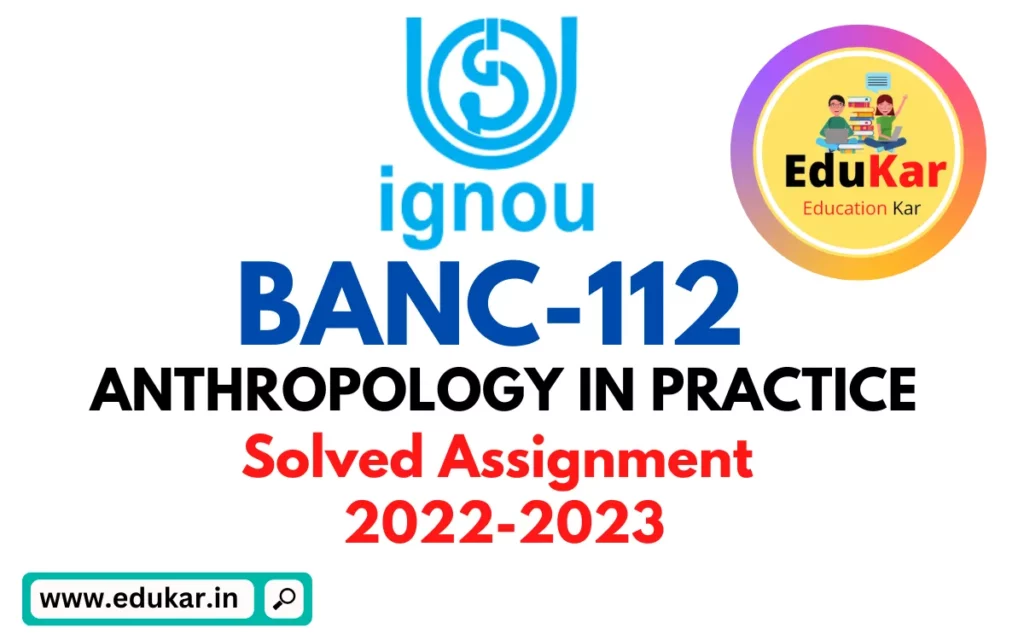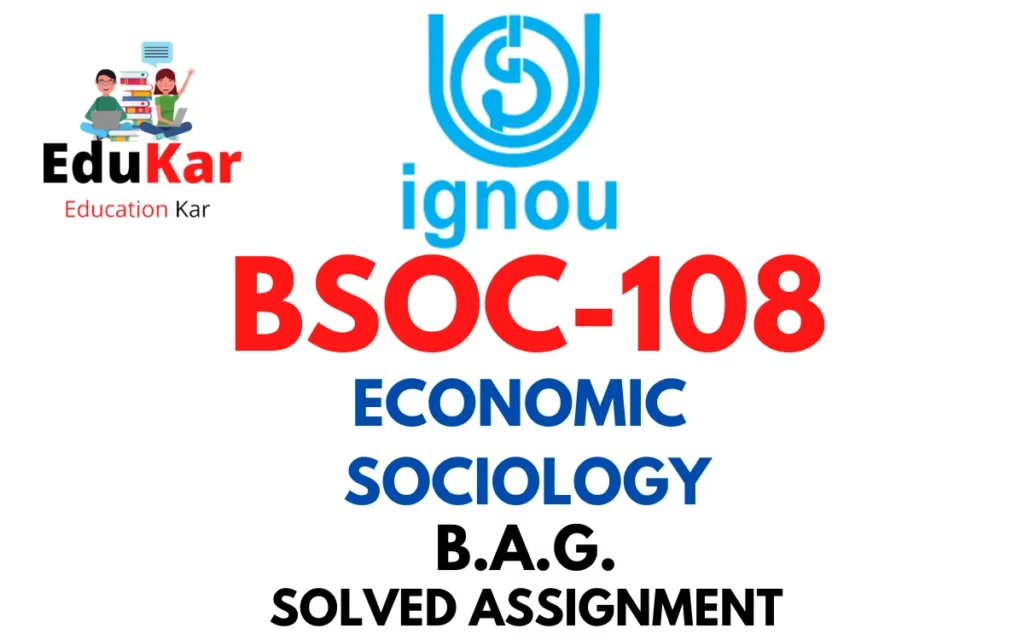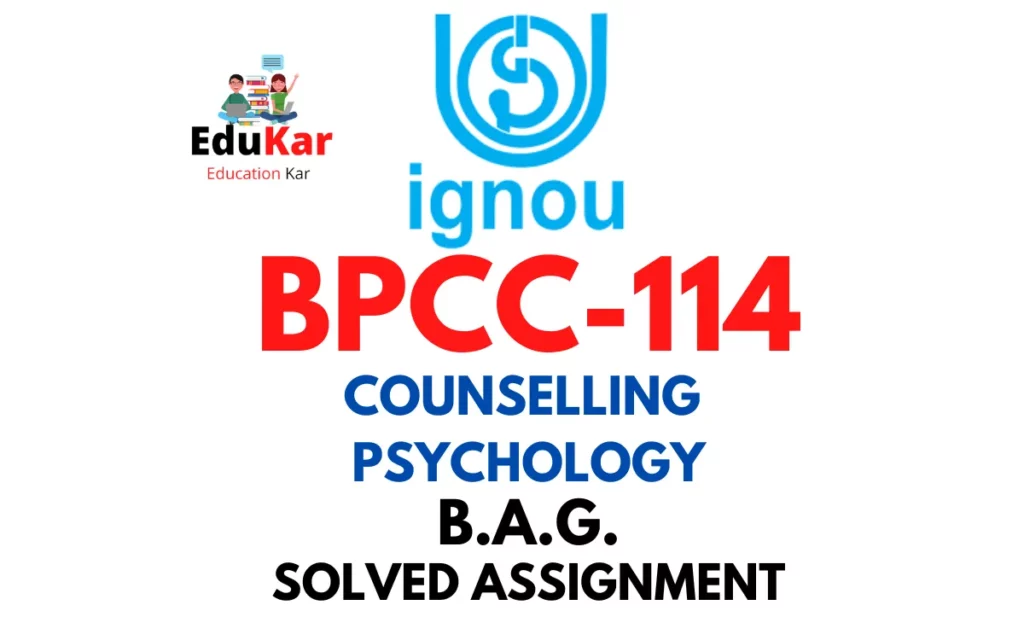Contents
- 1 Assignment A
- 2 Answer the following in about 500 words each.
- 3 1. Explain the concept of social aim of education. Discuss arguments in favour and against the social aim of education.
- 4 2. Discuss educational philosophy of Ari Aurobindo with special reference to aims of education, curriculum, pedagogy and relationship between teacher and students.
- 5 Assignment B
- 6 Answer the following questions in about 250 words each.
- 7 3. Compare and contrast among the face-to-face, distance and online education system.
- 8 4. How philosophy and education are interrelated with each other? Explain.
- 9 5. Explain the concept of Basic Education system and pedagogy as per Gandhiji.
- 10 6. Explain the causes of inequality in education.
- 11 Assignment C
- 12 Answer the following questions in about 125 words each.
- 13 7. Briefly explain the essential features of Experimental Method.
- 14 8. Differentiate between classical and operant conditioning.
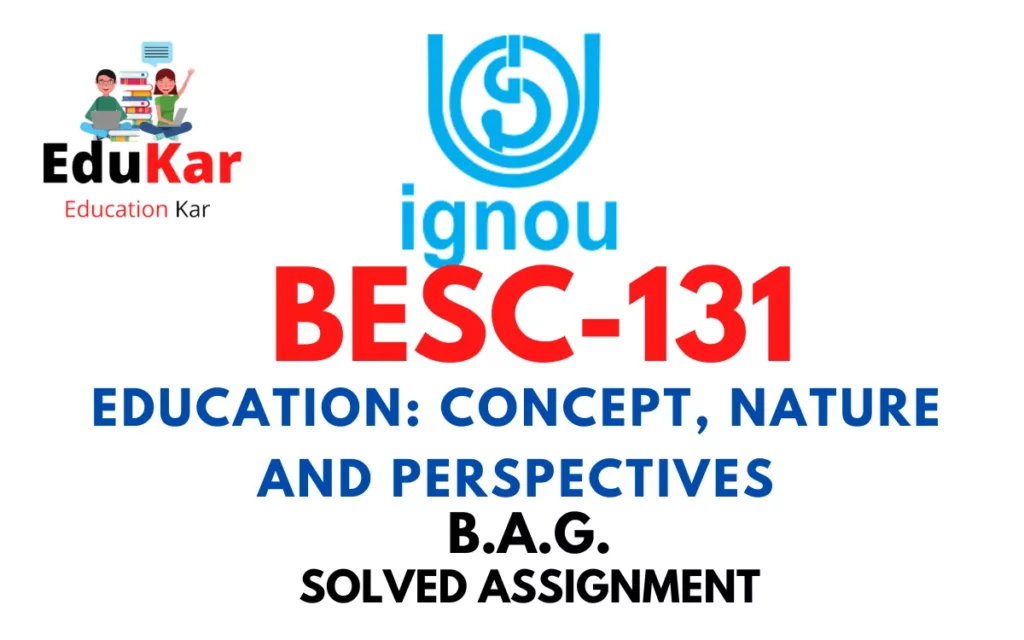
| Title | BESC-131: IGNOU BAG Solved Assignment 2022-2023 |
| University | IGNOU |
| Degree | Bachelor Degree Programme |
| Course Code | BESC-131 |
| Course Name | EDUCATION: CONCEPT, NATURE AND PERSPECTIVES |
| Programme Name | Bachelor of Arts (General) |
| Programme Code | BAG |
| Total Marks | 100 |
| Year | 2022-2023 |
| Language | English |
| Assignment Code | BESC-131 /TMA /July 2022 and January 2023 |
| Assignment PDF | Click Here |
| Last Date for Submission of Assignment: | For June Examination: 31st April For December Examination: 30th September |
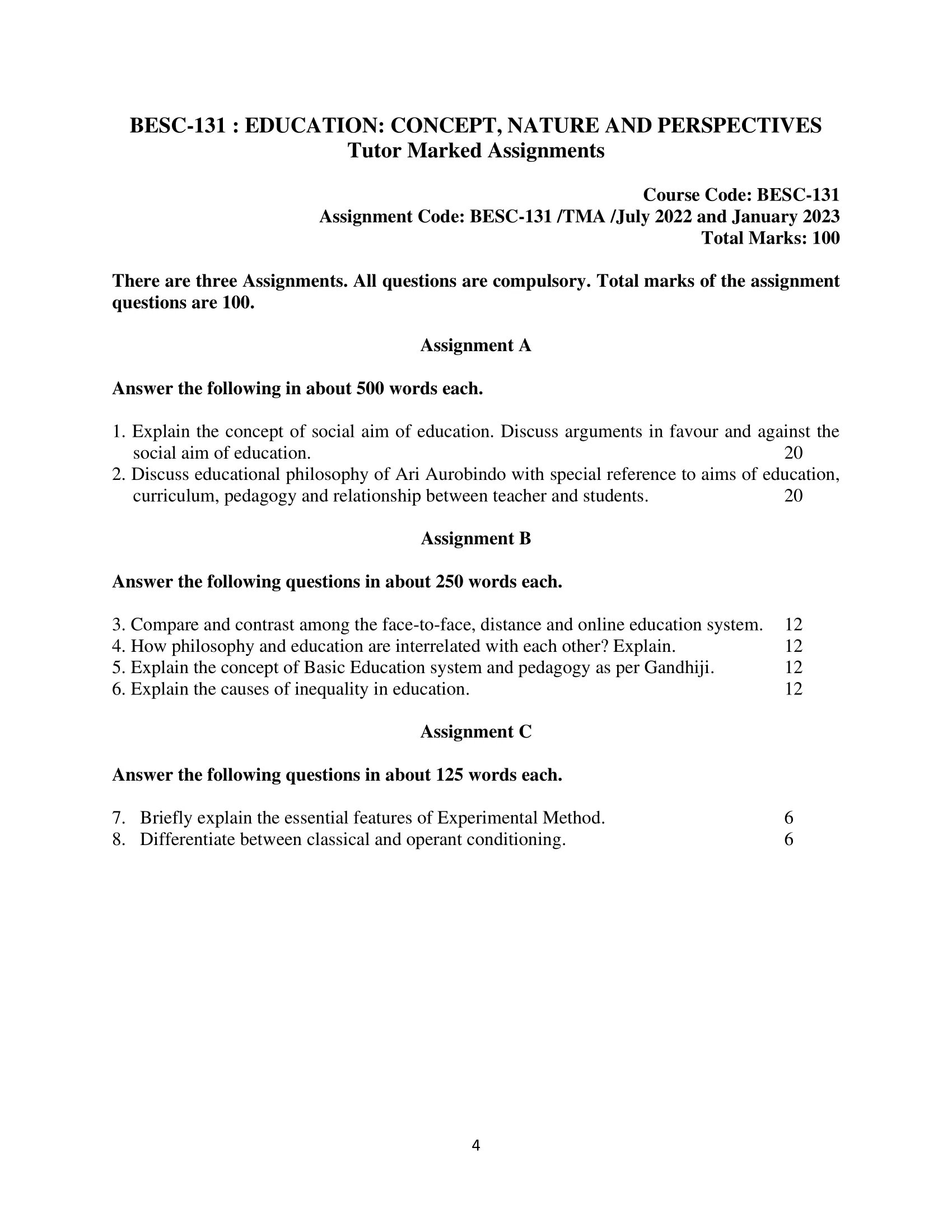
Assignment A
Answer the following in about 500 words each.
Ans: The social aim of education refers to the idea that the primary purpose of education is to prepare individuals to become responsible and productive members of society. In other words, education should aim to create citizens who are capable of contributing to the well-being of their communities and society as a whole.
Proponents of the social aim of education argue that it is essential for the development of a healthy and functioning society. They believe that education should focus not only on individual development but also on social and civic development. The social aim of education emphasizes the importance of social cohesion, community engagement, and the development of social skills such as communication, collaboration, and leadership.
One of the arguments in favor of the social aim of education is that it helps to promote social equality and reduce social inequality. Education provides individuals with the knowledge, skills, and opportunities necessary to succeed in life, regardless of their social background. By providing equal access to education, society can ensure that everyone has an equal opportunity to succeed and contribute to society.
Another argument in favor of the social aim of education is that it helps to promote democracy and social justice. Education can help individuals develop critical thinking skills, engage in civic activities, and become active and informed citizens. By educating individuals on their rights and responsibilities as citizens, society can ensure that everyone has a voice and that social justice is upheld.
However, there are also arguments against the social aim of education. One argument is that the social aim of education can lead to conformity and the suppression of individuality. By emphasizing the importance of social cohesion and community engagement, the social aim of education may overlook the importance of individual expression and creativity.
Another argument against the social aim of education is that it can lead to the neglect of individual needs and goals. The social aim of education may place too much emphasis on the needs of society as a whole, which can result in the neglect of individual needs and goals. This can be particularly problematic in a diverse and multicultural society, where individuals may have different needs and goals.
2. Discuss educational philosophy of Ari Aurobindo with special reference to aims of education, curriculum, pedagogy and relationship between teacher and students.
Ans: Sri Aurobindo was a renowned Indian philosopher, yogi, and scholar who is known for his contributions to Indian spirituality, philosophy, and education. His educational philosophy was centered around the belief that education should not only impart knowledge, but also help individuals to develop their full potential as human beings. In this essay, we will discuss Sri Aurobindo’s educational philosophy with special reference to aims of education, curriculum, pedagogy, and the relationship between teacher and students.
Aims of Education: According to Sri Aurobindo, the ultimate aim of education is to help individuals evolve and achieve their highest potential. He believed that every individual has a unique potential that needs to be developed through education. He emphasized that the aim of education should not only be limited to acquiring knowledge but should also be focused on developing the mind, body, and spirit of the individual. He believed that education should help individuals to become more conscious, self-aware, and to develop a sense of purpose and direction in life.
Curriculum: Sri Aurobindo believed that the curriculum should be designed in such a way that it is flexible and adaptable to the needs and interests of the individual student. He emphasized that the curriculum should be interdisciplinary and holistic, integrating various subjects and disciplines. He believed that education should be based on a spiritual foundation and should include the study of philosophy, ethics, and spirituality. He also believed that the curriculum should be focused on developing the creative and intuitive aspects of the individual.
Pedagogy: Sri Aurobindo believed that the role of the teacher is not just to impart knowledge, but to help students develop their full potential. He believed that teachers should be facilitators of learning, providing a supportive and nurturing environment for students to learn and grow. He believed that education should be student-centered and that the learning process should be personalized and adapted to the needs and interests of each student. He emphasized the importance of experiential learning and the use of creative and innovative teaching methods.
Relationship between Teacher and Students: According to Sri Aurobindo, the relationship between the teacher and the student should be one of mutual respect and trust. He believed that the teacher should be a mentor, guide, and friend to the student, providing support and encouragement as the student grows and develops. He believed that the teacher should be a role model, demonstrating the values and principles of the educational system.
Assignment B
Answer the following questions in about 250 words each.
3. Compare and contrast among the face-to-face, distance and online education system.
Ans: Face-to-face, distance, and online education are three different modes of delivering education to students. Each has its own advantages and disadvantages, and they all serve different purposes. Here is a comparison of the three:
Face-to-Face Education: In this traditional form of education, students attend classes physically in a classroom setting, and interact with their teachers and peers in person. This mode of education provides a highly interactive and engaging learning experience, with immediate feedback and support from teachers. Students can also benefit from social interaction with their peers and extracurricular activities. However, face-to-face education can be inflexible and may not be accessible to everyone.
Distance Education: Distance education, also known as correspondence education, involves sending course materials to students who are not physically present on campus. This mode of education can be done through mail, television, or other media. This mode of education provides flexibility for students, allowing them to study at their own pace and on their own schedule. However, it lacks the interactive and social experience of face-to-face education.
Online Education: Online education is similar to distance education, but it is done through the internet. This mode of education provides a highly flexible and accessible learning experience for students. It allows for easy access to course materials and a wide range of digital tools that can enhance the learning experience. However, online education can lack the personal interaction of face-to-face education, and may require strong self-motivation and time-management skills.
Ans: Philosophy and education are interrelated in many ways. Philosophy helps us to understand the fundamental nature of reality, knowledge, and values, and to develop a coherent and consistent worldview. Education, on the other hand, is concerned with the development of human potential, and with the transmission of knowledge, skills, and values from one generation to the next. Both philosophy and education are concerned with fundamental questions about the nature of human beings, the purpose of life, and the nature of reality.
One of the most important ways in which philosophy and education are interrelated is through the development of educational theory. Educational theory is concerned with the nature of learning, the goals of education, and the best methods of teaching. Philosophical theories of education provide a framework for understanding these questions, and for developing effective educational practices. For example, the philosophy of pragmatism, which emphasizes the importance of practical experience and problem-solving, has had a profound influence on educational theory and practice.
In addition to informing educational theory, philosophy also provides a foundation for ethical and moral reasoning. Educational practices and policies are often based on ethical and moral considerations, and philosophy helps us to understand the underlying principles and values that guide these decisions. For example, the philosophy of humanism, which emphasizes the dignity and worth of human beings, has influenced the development of educational policies that aim to promote social justice and equality.
Finally, philosophy and education are interrelated through the development of critical thinking skills. Critical thinking is the ability to analyze and evaluate ideas, arguments, and evidence, and to make reasoned judgments based on that analysis. Philosophy provides a framework for developing critical thinking skills, and education provides the opportunities and resources for applying those skills in a practical context.
5. Explain the concept of Basic Education system and pedagogy as per Gandhiji.
Ans: Mahatma Gandhi, one of India’s greatest leaders, believed that education is the key to national development and individual liberation. He emphasized the importance of basic education for all, which he believed should be centered on the principles of self-reliance, creativity, and moral values.
According to Gandhi, the basic education system should be based on a child-centered pedagogy that focuses on the interests and needs of the individual child. This approach would help to develop the child’s natural abilities and creativity, rather than forcing them into a predetermined mold. Gandhi believed that this approach would help to create a society of self-reliant and creative individuals who would be capable of solving their own problems and contributing to the well-being of the community.
Gandhi’s pedagogy focused on the development of the whole child, including their physical, intellectual, emotional, and moral well-being. He believed that education should be holistic, with a focus on the development of the child’s character and moral values. According to Gandhi, education should aim to develop a sense of social responsibility and a commitment to the welfare of the community.
In order to achieve this, Gandhi proposed a decentralized and community-based system of education, which would be accessible to all, regardless of their social background. He believed that education should be tailored to the needs of the local community, with a focus on the practical skills that would be useful in everyday life.
6. Explain the causes of inequality in education.
Ans: Inequality in education refers to the unequal distribution of educational opportunities and resources among individuals or groups. There are several causes of inequality in education, which include:
- Socioeconomic Status: Socioeconomic status (SES) is one of the major causes of inequality in education. Students from low-income families often lack access to quality education and resources such as books, technology, and tutoring. This often results in lower academic achievement and reduced opportunities for higher education and career advancement.
- Geographic Location: Students living in rural or remote areas often face inequality in education due to a lack of access to quality schools, teachers, and resources. This can lead to reduced opportunities for academic achievement and career advancement.
- Discrimination and Bias: Discrimination and bias based on race, ethnicity, gender, or religion can also contribute to inequality in education. Students from minority groups often face discrimination and bias, which can result in reduced opportunities for academic achievement and career advancement.
- Funding and Resource Allocation: The allocation of funding and resources can also contribute to inequality in education. Schools in low-income areas often receive less funding than schools in affluent areas, resulting in a lack of resources and reduced opportunities for academic achievement.
- Teacher Quality: The quality of teachers can also contribute to inequality in education. Schools in low-income areas often have lower-quality teachers due to lower salaries and reduced resources for teacher training and development.
Assignment C
Answer the following questions in about 125 words each.
7. Briefly explain the essential features of Experimental Method.
Ans: Experimental method is a research design used to investigate cause-and-effect relationships between variables. It involves manipulating one variable (independent variable) while keeping all other variables constant, and observing the effect on another variable (dependent variable). Here are some essential features of the experimental method:
- Control: The researcher manipulates the independent variable and controls all other variables to isolate the effect of the independent variable.
- Randomization: Participants are randomly assigned to different groups to reduce bias and increase the validity of the results.
- Manipulation: The independent variable is deliberately altered to observe the effect on the dependent variable.
- Measurement: The dependent variable is measured to assess the effect of the independent variable.
- Replication: The experiment is repeated to ensure the reliability and validity of the results.
8. Differentiate between classical and operant conditioning.
Ans: Classical conditioning and operant conditioning are two types of learning processes that are used to explain how organisms acquire new behaviors.
Classical conditioning involves pairing a neutral stimulus with a natural, reflexive response until the neutral stimulus alone can elicit the same response. In other words, a previously neutral stimulus (conditioned stimulus) is paired with a naturally occurring stimulus (unconditioned stimulus) until it can produce the same response (conditioned response) as the naturally occurring stimulus.
On the other hand, operant conditioning involves changing the likelihood of a behavior through consequences, either reinforcement (increasing the likelihood of a behavior) or punishment (decreasing the likelihood of a behavior). In operant conditioning, the behavior comes first, and then a consequence is added to modify the behavior. This can include positive reinforcement, negative reinforcement, positive punishment, and negative punishment.
How to Download BESC-131 Solved Assignment?
You can download it from the www.edukar.in, they have a big database for all the IGNOU solved assignments.
Is the BESC-131 Solved Assignment Free?
Yes this is absolutely free to download the solved assignment from www.edukar.in
What is the last submission date for BESC-131 Solved Assignment?
For June Examination: 31st April, For December Examination: 30th October

